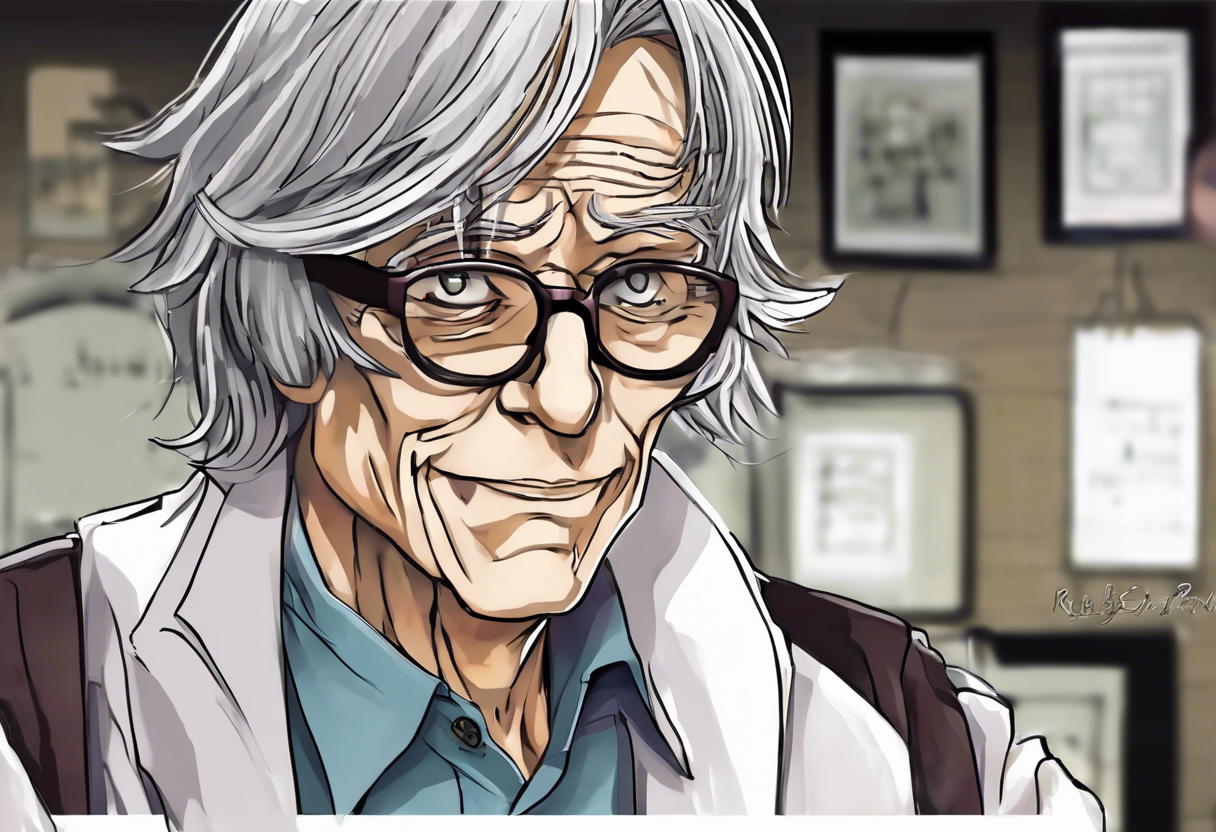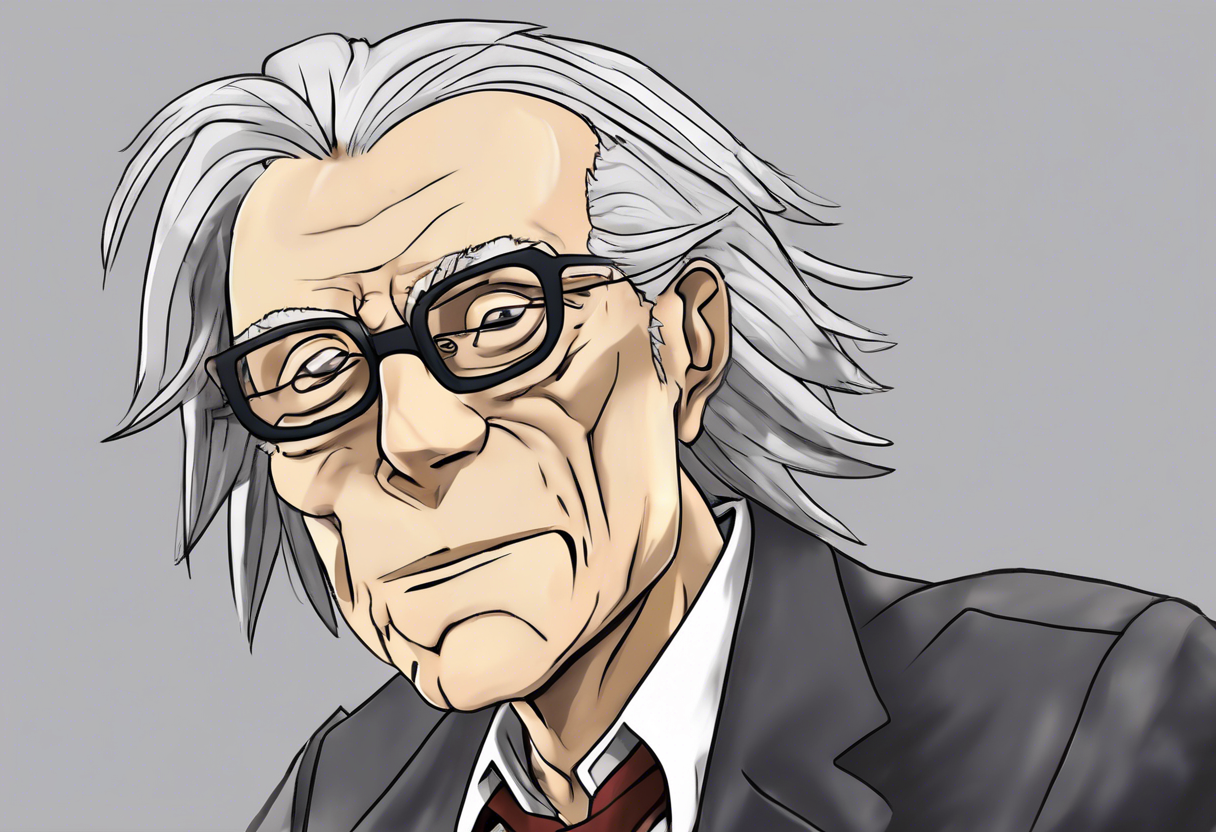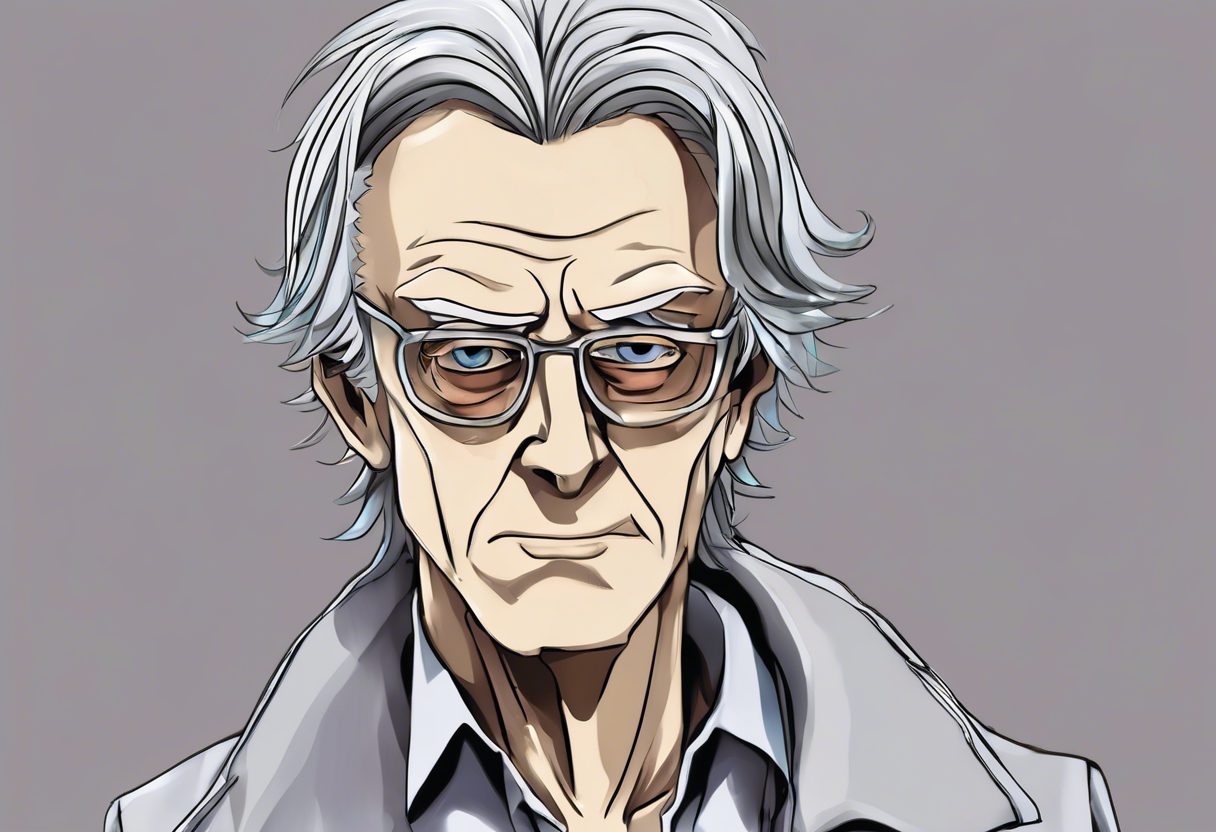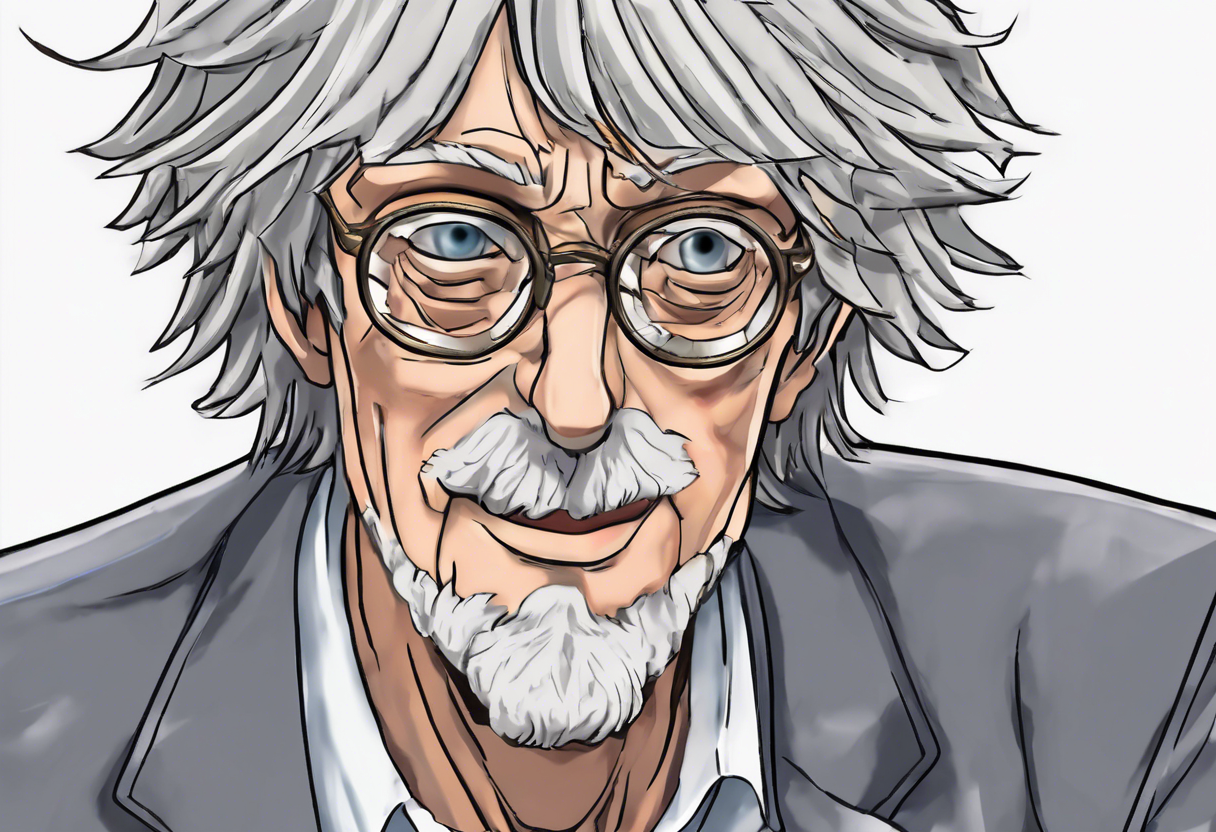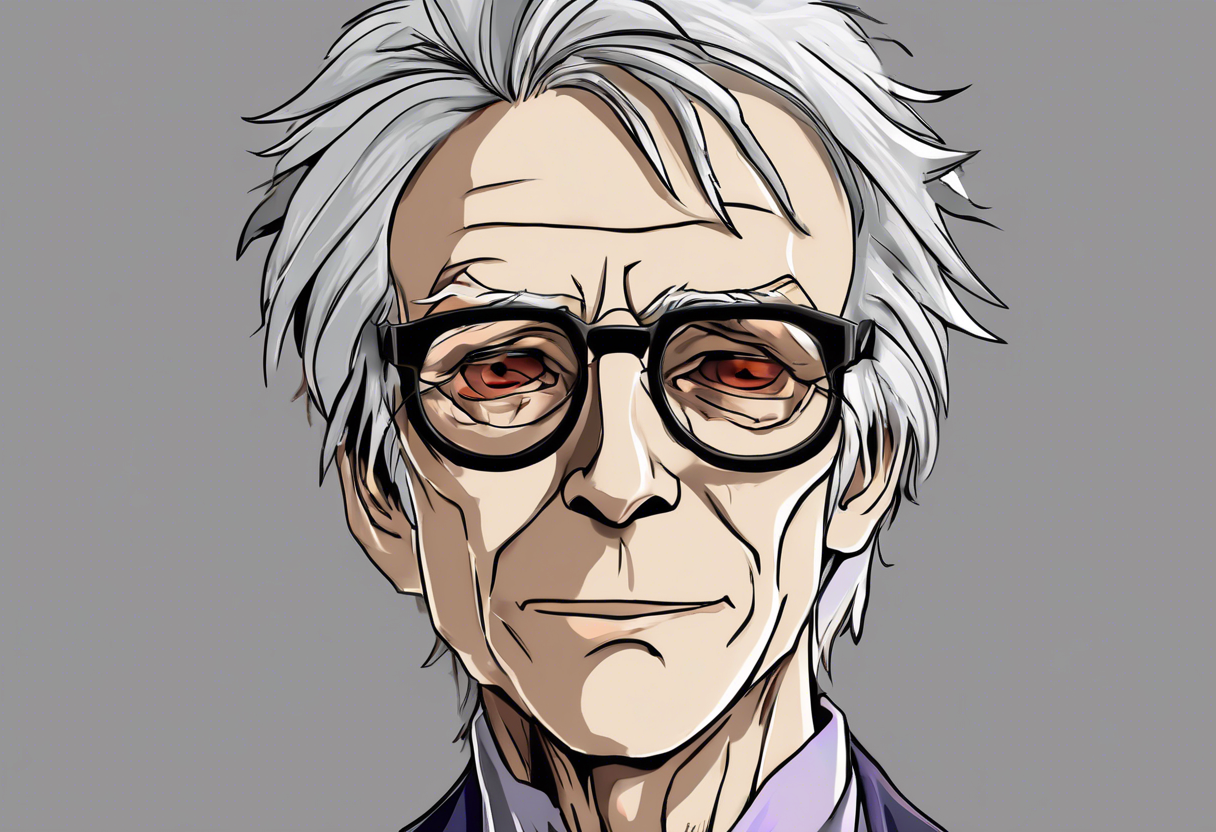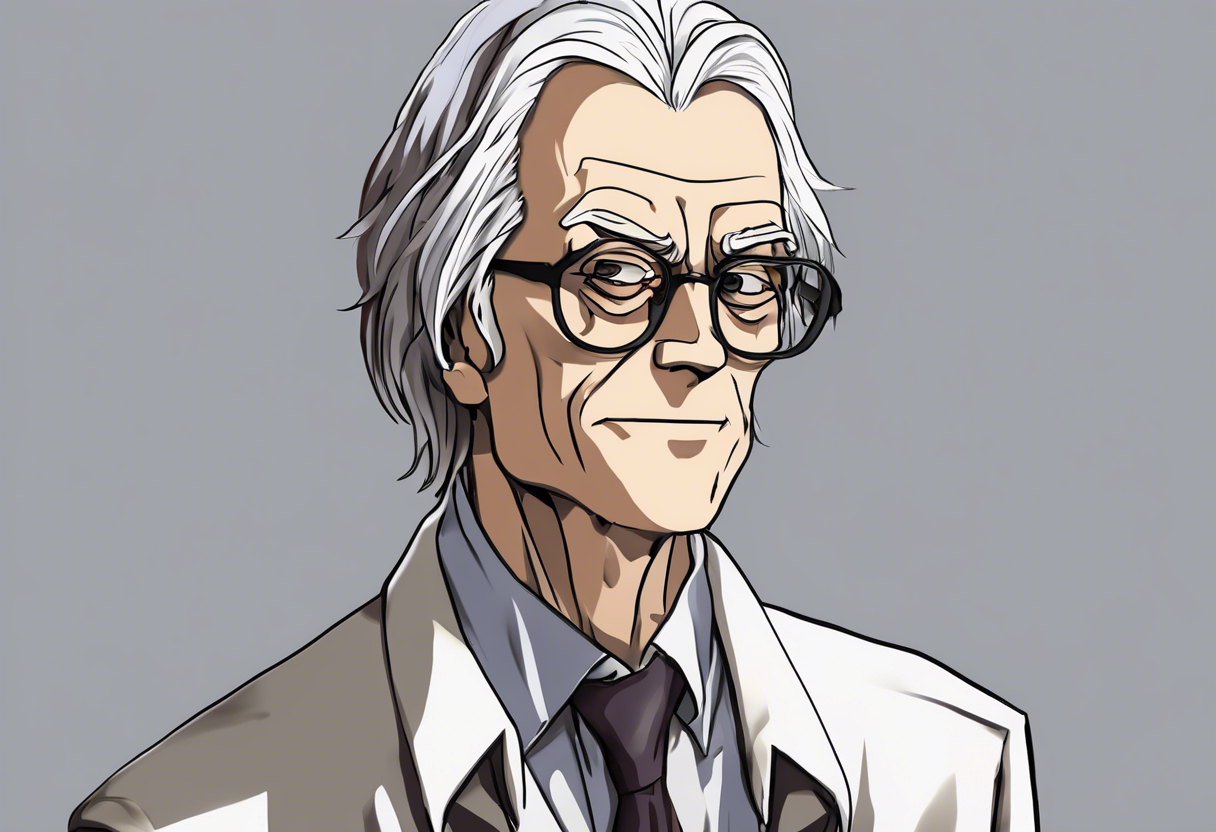Contents
Roger Ruvie: The Enigmatic Caretaker of Wammy House in Death Note
Introduction
Roger Ruvie, known as Roja Ruvi in Japanese, is a pivotal character in the anime and manga series Death Note, created by Tsugumi Ohba and Takeshi Obata. He serves as the director of Wammy House, an orphanage in Winchester, England, that is renowned for housing and nurturing exceptionally gifted children. Founded by the original Watari, a close friend of Roger’s, Wammy House plays a crucial role in the series as a hub for training potential successors to the legendary detective L.
Roger Ruvie’s character is marked by his unique blend of traits: he is a 65-year-old man with gray hair and brown eyes, standing at 5’5" and weighing 108 lbs [1][2]. Despite his role in managing an orphanage, he has an intriguing aversion to children, preferring instead to engage with his extensive collection of insect books. This dichotomy makes him an enigmatic figure, adding depth to the narrative of Death Note.
Role in the Story
Roger Ruvie’s storyline becomes significant after the death of L, the original detective who was hunting down the serial killer known as Kira (Light Yagami). Following L’s demise, Roger takes on the role of the "new Watari" for Near, one of L’s successors along with Mello. This transition is crucial as it ensures continuity in the investigative efforts against Kira.
Roger’s primary responsibility is to support Near in his quest to uncover Kira’s identity. He acts as a liaison and provides logistical support, leveraging his knowledge and connections to aid Near’s investigations. His involvement is particularly noteworthy as he helps Near navigate the complex web of clues and strategies that L had established before his death [1][3][4].
Roger’s interactions with Near and Mello highlight his importance in the story. Despite his dislike for children, he shows a deep commitment to the mission and a respect for the intellectual prowess of his young wards. His role extends beyond mere administrative duties; he becomes a trusted advisor and confidant, much like Watari was to L.
Character Analysis
Roger Ruvie’s personality is a fascinating mix of reserve and dedication. His aversion to children, despite managing an orphanage, suggests a complex individual with possibly unresolved personal issues or a strict sense of duty. This contrast makes him more relatable and human, as it shows that even those in positions of care can have their own set of challenges and preferences.
His motivations are rooted in loyalty and a sense of responsibility. Roger’s close friendship with the original Watari and his commitment to continuing Watari’s work demonstrate a strong sense of duty and respect for his predecessor’s legacy. This loyalty extends to his support for Near and Mello, whom he guides with the same level of dedication that Watari showed to L [1][2][4].
Roger’s strengths lie in his organizational skills and his ability to remain calm under pressure. He is a quiet, unassuming figure who works behind the scenes to ensure the success of the mission. His flaws, however, include his somewhat aloof nature and his discomfort around children, which can make his interactions seem awkward or distant.
Despite these flaws, Roger’s character development is significant. He evolves from a somewhat isolated figure to a crucial member of the team, demonstrating adaptability and a willingness to support the next generation of detectives. This development adds a layer of depth to his character, making him more than just a background figure.
Themes and Symbolism
Roger Ruvie embodies several themes that are central to Death Note. One of the most prominent themes is the concept of legacy and continuity. By taking on the role of the "new Watari," Roger ensures that the work of L and Watari continues, highlighting the importance of mentorship and the passing of knowledge from one generation to the next.
Another theme is the contrast between appearance and reality. Roger’s aversion to children, despite his role as an orphanage director, serves as a reminder that people are often more complex than they appear. This theme is echoed throughout the series, particularly in characters like Light Yagami, who presents a façade of justice while hiding his true intentions.
Roger also symbolizes the quiet, unsung heroes who work behind the scenes. His contributions to the investigation are crucial, yet he remains in the shadows, allowing the younger detectives to take the forefront. This symbolism underscores the value of teamwork and the importance of supporting roles in achieving larger goals.
Cultural Impact
Roger Ruvie’s character has had a notable impact on the Death Note fanbase. His enigmatic nature and pivotal role in the story have made him a subject of interest among fans, who appreciate the depth he adds to the narrative. In adaptations and spin-offs, Roger’s character has been consistently portrayed as a loyal and dedicated figure, reinforcing his significance in the original series.
In terms of cultural influence, Roger Ruvie represents a type of character archetype that is often overlooked in popular media—the quiet, behind-the-scenes supporter. His character has inspired similar roles in other anime and manga series, highlighting the importance of these unsung heroes in driving the plot forward.
Critical Reception
Critics and audiences have generally praised Roger Ruvie’s character for his subtlety and depth. His role as a bridge between the original L and the new generation of detectives has been particularly appreciated, as it adds a layer of continuity to the story. Some critics have noted that his character could have been explored further, but overall, his contributions to the narrative have been well-received.
There have been no major controversies surrounding Roger Ruvie’s character, largely because he is portrayed as a neutral, supportive figure rather than a central antagonist or protagonist. His reception has been positive, with fans acknowledging his importance in the story.
Legacy
Roger Ruvie’s legacy in Death Note is that of a dedicated and loyal supporter who ensures the continuation of a critical mission. His character serves as a reminder of the importance of teamwork and the value of those who work behind the scenes.
In contemporary discussions, Roger Ruvie’s character continues to be relevant as an example of how supporting characters can drive the narrative forward. His influence can be seen in other works where similar character archetypes are used to add depth and continuity to the story.
Roger Ruvie remains an enduring figure in the Death Note universe, a testament to the power of quiet dedication and the importance of legacy in the pursuit of justice.

